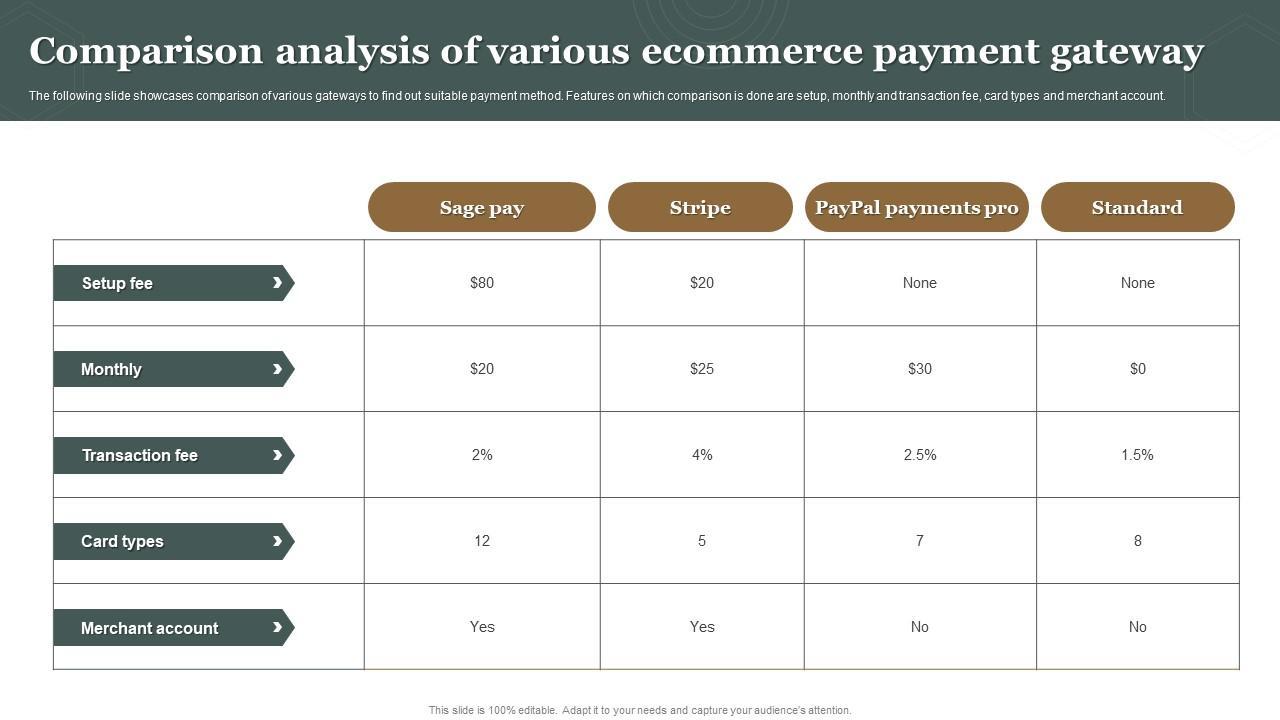In today’s fast-paced digital economy, choosing the right payment gateway can make or break your business. With a plethora of options available, how do you know which one will seamlessly integrate with your operations, boost your sales, and keep your customers coming back for more? As we step into 2025, it’s more crucial than ever to stay informed about the latest payment processing solutions. In this article, we’ll dive deep into a comprehensive comparison of the top payment gateway providers, analyzing their features, fees, and user experiences. Whether you’re a seasoned entrepreneur or just starting your e-commerce journey, our insights will help you navigate the complex landscape of payment solutions and find the perfect fit for your needs. Let’s make sure you’re equipped with the best tools to drive your business forward!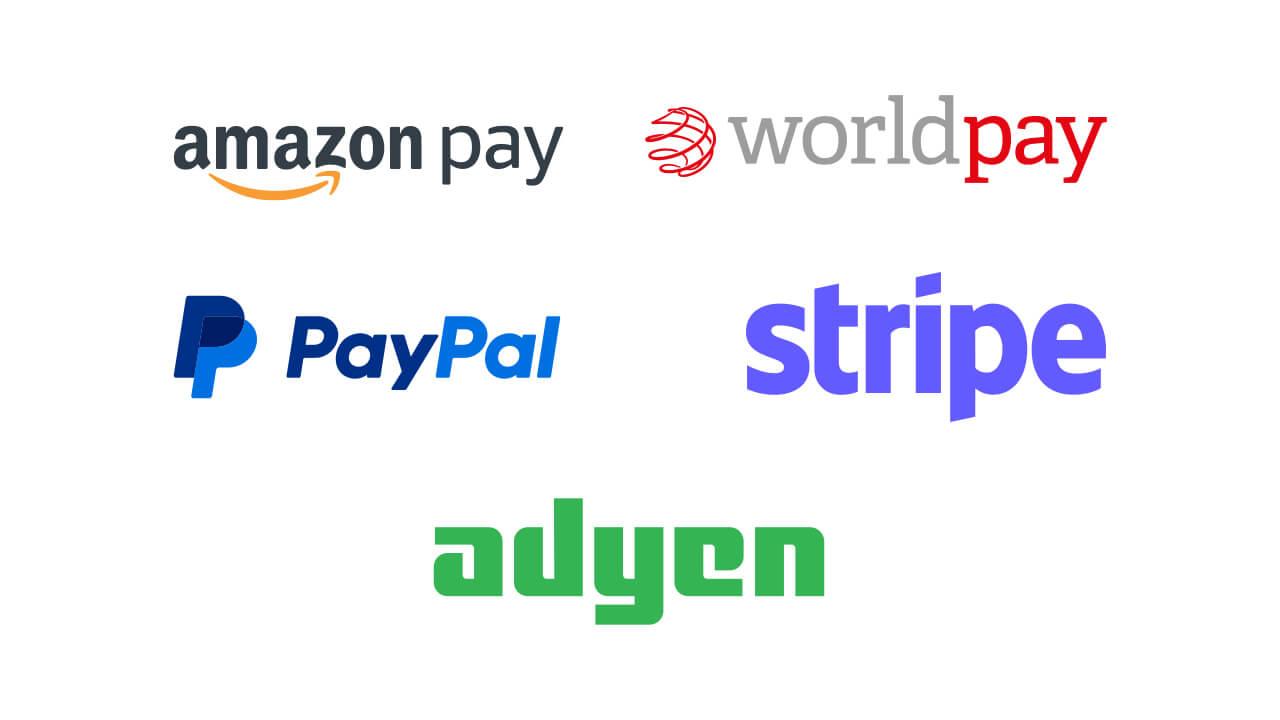
Understanding Payment Gateways: Why They Matter for Your Business
In today’s digital marketplace, choosing the right payment gateway is crucial for any business aiming to thrive. These tools serve as the bridge between your customers and their transactions, ensuring smooth and secure processing of payments. A reliable payment gateway not only enhances the shopping experience but also builds trust with your customers, which is essential for repeat business.
When evaluating payment gateways, consider the following key factors:
- Security: With the rise of online fraud, security features such as encryption and PCI compliance are non-negotiable. Customers need to feel confident that their information is safe.
- Transaction Fees: Different providers have varying fee structures. Choose a gateway that aligns with your budget while offering the necessary features.
- Integration: Ensure that the payment gateway seamlessly integrates with your existing e-commerce platform. A smooth setup can save you time and hassle in the long run.
- Customer Support: Reliable customer service can make all the difference. Opt for a provider that offers 24/7 support to address any issues as they arise.
Moreover, consider the geographical reach of the payment gateway. If your business targets international customers, it’s vital to select a provider that supports multiple currencies and payment methods. This flexibility can significantly enhance the user experience and increase conversion rates.
The user interface is another important aspect to think about. A straightforward and intuitive payment process can reduce cart abandonment rates. If customers encounter a complicated checkout process, they might think twice before completing their purchase. Therefore, invest in a payment gateway known for its ease of use.
| Provider | Fees | Key Features | Best For |
|---|---|---|---|
| Stripe | 2.9% + 30¢/transaction | Customizable API, international payments | Startups & Developers |
| PayPal | 2.9% + 30¢/transaction | Widely recognized, easy integration | Small Businesses |
| Square | 2.6% + 10¢/transaction | Point of Sale (POS) integration | Brick-and-Mortar Stores |
| Authorize.Net | $25/month + 2.9% + 30¢/transaction | Robust fraud prevention tools | Established Businesses |
Ultimately, the right payment gateway can be a game-changer for your business. By prioritizing security, fees, integration, and user experience, you can create a seamless transaction process that fosters customer loyalty and drives sales growth. As you explore your options for 2025, take the time to analyze different providers to find the best match for your unique business needs.
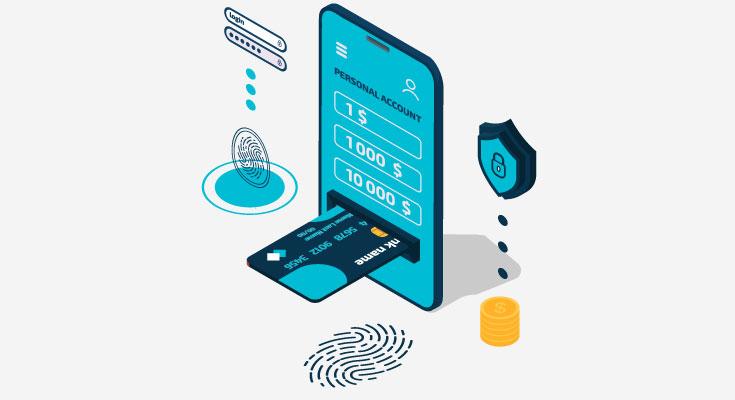
Key Features to Look for in a Payment Gateway Provider
When evaluating a payment gateway provider, there are several essential features that can significantly impact your business operations. A seamless payment experience is vital, not only for your customers’ satisfaction but also for improving conversion rates. Here are the key features you should consider:
- Security Measures: Look for providers that offer robust security protocols, including PCI DSS compliance, encryption, and fraud detection tools. Ensuring that customer payment information is safe can enhance trust and credibility.
- Transaction Fees: Fees can vary widely among providers. Examine the fee structure, including setup fees, monthly fees, and transaction fees to find a provider that aligns with your budget.
- Multiple Payment Methods: A good payment gateway should support various payment options, such as credit/debit cards, e-wallets, and even cryptocurrencies. This flexibility can cater to a broader audience and increase sales.
- Integration Capabilities: The ability to seamlessly integrate with your existing e-commerce platform or accounting software is crucial. Look for providers that offer APIs and plugins that simplify the integration process.
- Customer Support: Reliable customer support is essential, especially during peak transaction times. Check if the provider offers 24/7 support through multiple channels, such as phone, email, and live chat.
Additionally, consider the provider’s user experience. A smooth, intuitive checkout process can minimize cart abandonment rates. Look for features like one-click payment options or guest checkout capabilities to streamline transactions. Furthermore, assess the reporting and analytics tools offered. Insightful data can help you understand sales trends, customer behaviors, and operational performance, allowing you to make informed business decisions.
| Feature | Importance |
|---|---|
| Security Measures | High |
| Transaction Fees | Medium |
| Multiple Payment Methods | High |
| Integration Capabilities | High |
| Customer Support | High |
selecting the right payment gateway is not just about transaction processing; it involves choosing a partner that can grow with your business. By focusing on these key features, you can ensure that your payment gateway provider is equipped to meet your needs and enhance the overall customer experience.
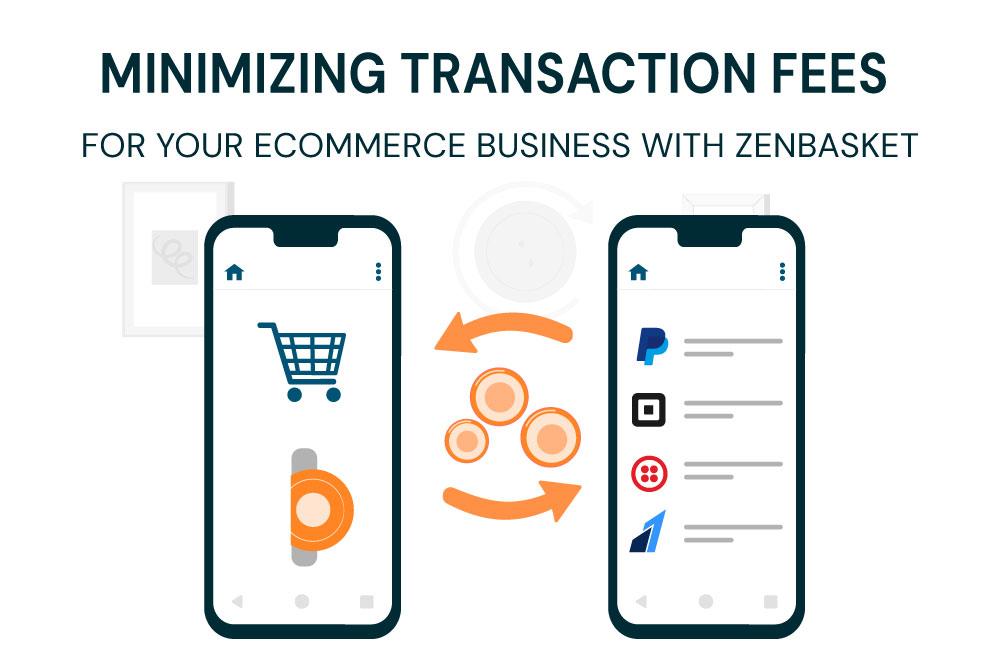
Comparing Transaction Fees: Which Providers Offer the Best Value
When it comes to choosing a payment gateway, transaction fees can significantly impact your bottom line. As businesses look to maximize their profits while providing seamless payment experiences, understanding the fee structures of various providers is crucial. Some providers may lure you in with low rates but hit you with hidden charges, while others offer transparent pricing that can save you money in the long run.
Here’s a snapshot of how leading payment gateways stack up in terms of transaction fees:
| Provider | Transaction Fee | Monthly Fee | Additional Charges |
|---|---|---|---|
| Stripe | 2.9% + 30¢ | None | Refunds – 0% (No fee) |
| PayPal | 2.7% + 30¢ | None | Chargeback – $20 |
| Square | 2.6% + 10¢ | None | Instant Deposit – 1% fee |
| Authorize.Net | 2.9% + 30¢ | $25 | Chargebacks - $25 |
From the table, it’s clear that providers like Stripe and PayPal stand out for their competitive rates and no monthly fees, making them ideal for startups or small businesses. Meanwhile, Square offers a slight edge with lower transaction fees, especially for in-person transactions, which is a considerable factor for brick-and-mortar stores.
However, don’t just focus on the numbers. Look into additional charges that could sneak up on you. Providers such as Authorize.Net have a monthly fee, which can add up quickly for businesses processing low volumes. It’s essential to calculate your expected transaction volume to identify the most cost-effective option for your needs.
Ultimately, the best value depends on your business model. For high transaction volumes, a provider with lower rates and transparent pricing is critical. For occasional transactions, a provider with no monthly fees but slightly higher transaction rates might be your best bet. Always read the fine print and assess your business’s unique requirements before making a decision!
Security First: How Top Gateways Protect Your Transactions
In an age where digital transactions dominate, ensuring the security of payment gateways has never been more critical. Top providers dedicate significant resources to safeguarding sensitive data against threats. Here’s how they achieve that:
- End-to-End Encryption: Leading gateways implement robust encryption protocols that protect transaction data from point of entry to final processing. This means that even if data is intercepted, it remains unreadable to unauthorized users.
- Tokenization: Instead of storing actual credit card numbers, these gateways utilize tokenization to replace sensitive information with unique identifiers. This minimizes the risk of data breaches, as actual card details are never stored on merchant servers.
- Fraud Detection Algorithms: Advanced machine learning algorithms monitor transactions in real-time, identifying and flagging suspicious activity. This proactive approach allows gateways to prevent fraudulent transactions before they occur.
- Compliance and Certifications: Reputable payment gateways adhere to PCI DSS (Payment Card Industry Data Security Standard) compliance, ensuring that they meet rigorous security standards. They often undergo regular security audits to maintain their certifications.
Moreover, many providers offer additional layers of security that can be customized according to the merchant’s needs:
| Provider | Security Feature | Details |
|---|---|---|
| Stripe | Radar for Fraud Teams | Utilizes machine learning to detect and block fraud. |
| PayPal | Two-Factor Authentication | Enhances account security with an extra verification layer. |
| Square | Encryption at Rest | Data is encrypted when stored, ensuring privacy. |
| Braintree | Dispute Management Tools | Automated systems help manage and resolve disputes efficiently. |
the focus on security in payment gateways not only protects your business but also fosters trust with your customers. By choosing a provider equipped with state-of-the-art security features, you’re not just safeguarding transactions; you’re also enhancing your brand reputation in today’s competitive market.
User Experience: The Importance of Seamless Checkout Processes
In today’s fast-paced digital world, the checkout process can make or break an online sale. A seamless experience not only enhances customer satisfaction but also significantly boosts conversion rates. When users encounter friction during checkout—whether it’s due to a complicated interface, unexpected fees, or slow loading times—they’re likely to abandon their carts. This underscores the critical need for e-commerce businesses to prioritize user experience in their payment processes.
To achieve a smooth checkout experience, consider the following aspects:
- Simplicity: Keep your checkout form short and straightforward. Ask only for essential information to minimize user effort.
- Multiple Payment Options: Offer a variety of payment methods to cater to different customer preferences, including credit cards, digital wallets, and bank transfers.
- Security: Ensure that your payment gateway is secure to foster trust. Display security badges and SSL certificates prominently.
- Mobile Optimization: With a growing number of users shopping on mobile devices, ensure that your checkout process is fully optimized for mobile screens.
Another key element is the presence of clear communication throughout the checkout process. Customers should be informed about what to expect at each step, including estimated delivery times and total costs. If there are any additional charges, such as shipping or taxes, these should be clearly outlined before final confirmation. This transparency reduces cart abandonment and fosters trust, making customers more likely to complete their purchases.
Lastly, consider the power of post-checkout engagement. After a successful transaction, follow up with customers through thank-you emails, feedback requests, or promotions for future purchases. This not only enhances the customer experience but also encourages repeat business, turning one-time buyers into loyal customers.
| Payment Gateway | Key Features | Ideal For |
|---|---|---|
| PayPal | Wide acceptance, buyer protection | Small to medium-sized businesses |
| Stripe | Customizable API, subscription billing | Tech-savvy startups |
| Square | In-person and online sales integration | Retailers with brick-and-mortar locations |
| Authorize.Net | Fraud protection, recurring billing | Established businesses needing robust features |

Integration Capabilities: Choosing a Gateway That Fits Your Tech Stack
When selecting a payment gateway, aligning it with your existing tech stack is crucial for ensuring seamless integration and operational efficiency. A mismatch can lead to unnecessary friction, affecting not just your business processes but also customer satisfaction. Here are key factors to consider:
- API Compatibility: Check if the gateway offers a well-documented API that integrates smoothly with your current systems, whether they are built on WordPress, Shopify, or custom frameworks.
- Plugin Availability: Many popular payment gateways provide plugins for major e-commerce platforms. Ensure that the gateway you choose has readily available and actively maintained plugins for easy integration.
- Customization Options: Look for a payment gateway that enables you to customize the checkout experience to align with your brand, enhancing user trust and engagement.
Another critical element is the gateway’s support for different payment methods. As consumer preferences evolve, your gateway should be capable of handling a variety of payment options, including:
- Credit and debit cards
- Digital wallets (like PayPal, Apple Pay, and Google Pay)
- Cryptocurrency payments
Moreover, scalability should be at the forefront of your decision-making process. As your business grows, so will your transaction volume and complexity. A payment gateway that can scale alongside your needs can save you time and money in the long run. Consider solutions that offer:
- Flexible pricing structures: Look for gateways with transparent fee structures that accommodate growth without hidden costs.
- Responsive support: In case of issues, having access to a knowledgeable support team can make a world of difference.
To facilitate your comparison, here’s a quick glance at some of the top payment gateways and their integration capabilities:
| Provider | API Support | Customization | Payment Methods |
|---|---|---|---|
| Stripe | Yes | Extensive | Cards, Wallets, Crypto |
| PayPal | Yes | Moderate | Cards, Wallets |
| Square | Yes | Flexible | Cards, Wallets |
Ultimately, selecting the right payment gateway requires a careful evaluation of how well it will integrate with your existing technologies while supporting your future growth. Make sure to conduct thorough research and trial any systems when possible. This strategic approach not only enhances operational effectiveness but also significantly boosts customer experience.
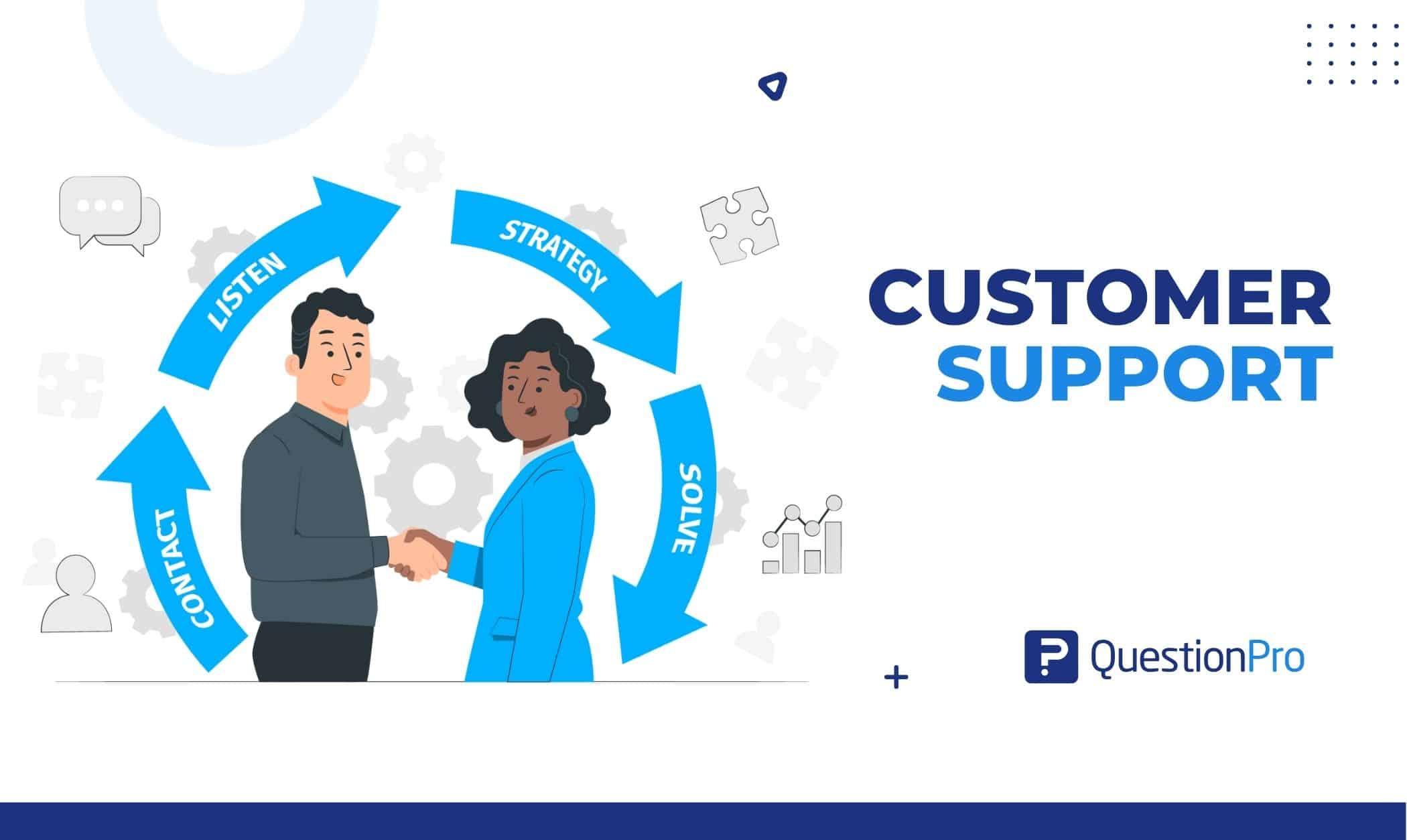
Customer Support: Why Reliable Assistance Can Make All the Difference
When navigating the ever-evolving landscape of payment solutions, the importance of reliable customer support cannot be overstated. Imagine integrating a new payment gateway and suddenly facing an unexpected issue. If you’re met with an unresponsive support team, your business could be left vulnerable, impacting sales and customer satisfaction. The right provider not only offers robust features but backs them with a support team that’s ready to assist you at a moment’s notice.
Consider the following key support features that can make a significant difference:
- 24/7 Availability: Problems don’t adhere to business hours. Providers that offer round-the-clock assistance ensure that you can get help whenever you need it.
- Multiple Support Channels: Whether through phone, email, or live chat, having multiple options to reach support can enhance your experience and streamline resolution processes.
- Comprehensive Knowledge Base: A well-organized online help center with FAQs, tutorials, and documentation can empower you to solve minor issues independently and save time.
Furthermore, a reliable support team can offer insights that go beyond troubleshooting. They can guide you in optimizing your payment processes and suggest best practices tailored to your business needs. This level of personalized support ensures that you’re not just using a payment gateway, but maximally leveraging its potential.
To illustrate the importance of customer support, let’s look at a quick comparison of top payment gateway providers based on their support offerings:
| Provider | 24/7 Support | Support Channels | Knowledge Base |
|---|---|---|---|
| Provider A | ✔️ | Phone, Email, Chat | Extensive |
| Provider B | ✔️ | Email, Chat | Moderate |
| Provider C | No | Phone, Email | Limited |
In essence, while you evaluate payment gateway providers for your business in 2025, don’t just focus on the fees or features. Dive deeper into their customer support offerings. After all, the difference between a smooth transaction experience and a frustrating one often boils down to the quality of assistance available when you need it most.

Evaluating Global Reach: Best Options for International Transactions
When considering the global landscape of payment gateways, businesses need to assess their options to ensure seamless international transactions. It’s essential to choose a provider that not only supports multiple currencies but also offers robust security features, competitive fees, and excellent customer support. Here are some of the best options currently available:
- PayPal: A household name in online payments, PayPal allows businesses to send and receive money across borders with minimal hassle. Its global reach and user-friendly interface make it a favorite for small and medium-sized enterprises.
- Stripe: Known for its developer-friendly API, Stripe is ideal for tech-savvy companies looking to customize their payment solutions. It supports a wide array of currencies and offers advanced features like recurring billing and subscription management.
- Square: While initially focused on point-of-sale solutions, Square has expanded its services to include e-commerce transactions. Their transparent pricing model and integrated tools make it a great choice for businesses looking to streamline operations.
- Adyen: This provider is a powerhouse for enterprises seeking a unified platform for both online and offline payments. Adyen supports numerous payment methods worldwide, making it a comprehensive solution for large-scale operations.
Each of these options has its own strengths and weaknesses, so it’s crucial to align your choice with your business needs. Factors to consider include:
- Transaction Fees: Look for transparent pricing structures that won’t eat away at your profits.
- Currency Support: Ensure the gateway can handle the currencies critical to your target markets.
- Customer Support: Reliable support can be a lifesaver, particularly when dealing with international transactions.
| Provider | Key Feature | Best For |
|---|---|---|
| PayPal | Accessibility | Small Businesses |
| Stripe | Customization | Tech Companies |
| Square | Integrated Solutions | Retailers |
| Adyen | Unified Payments | Large Enterprises |
Ultimately, the best payment gateway for your business will depend on your specific requirements and growth plans. By taking the time to evaluate these options, you can set your business up for success in the global marketplace.
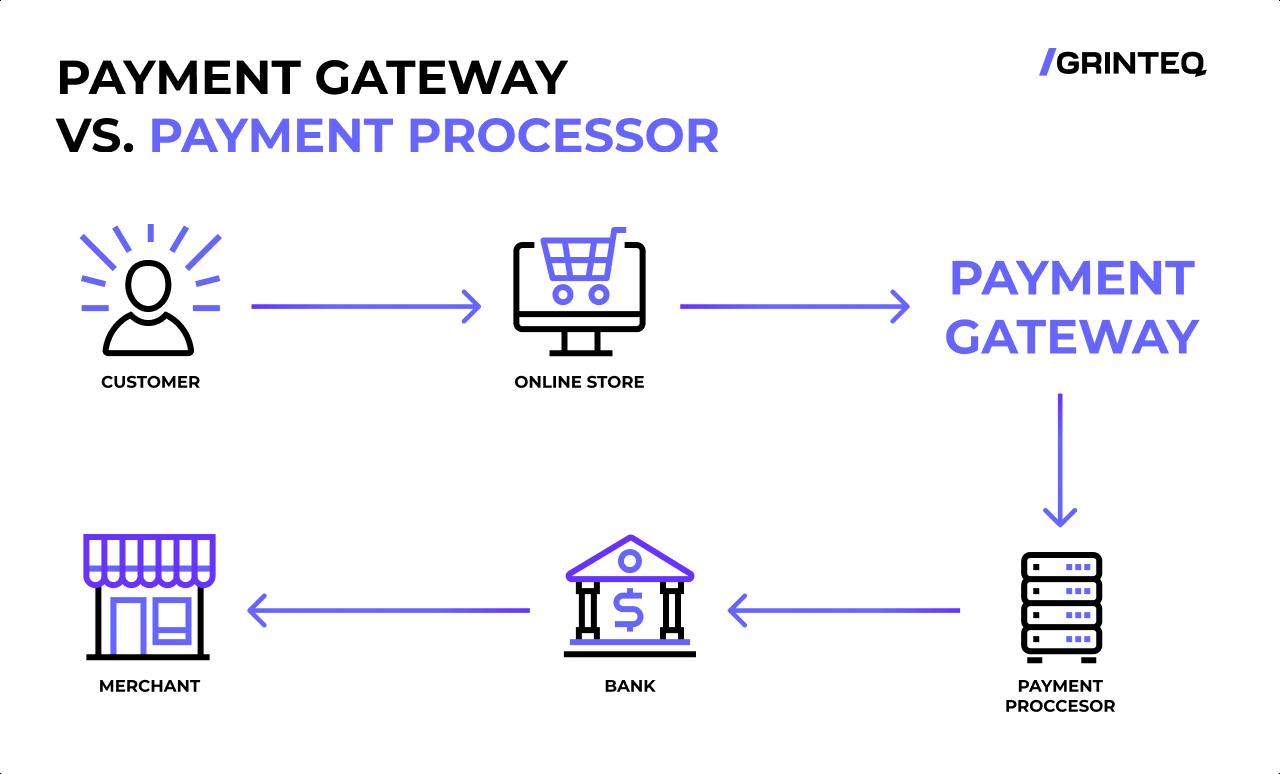
Future-Proofing Your Payments: What to Expect in 2025 and Beyond
As we look toward 2025, the landscape of payment gateways is poised for significant transformation. Businesses and consumers alike will witness an evolution driven by technological advancements, increased security measures, and changing consumer behaviors. Here’s what you can expect as you navigate future-proofing your payment solutions.
Enhanced Security Features will be at the forefront of payment processing. With the rise in cyber threats, payment gateways are adopting advanced security protocols, such as:
- Tokenization: Replacing sensitive card information with non-sensitive tokens to mitigate fraud.
- Biometric Authentication: Utilizing fingerprint and facial recognition to secure transactions.
- AI-Powered Fraud Detection: Implementing machine learning algorithms to identify and prevent fraudulent activities in real-time.
Another significant trend will be the integration of Omni-Channel Payment Solutions. As consumers increasingly expect seamless experiences across various platforms, payment gateways will need to provide:
- Unified Commerce: A cohesive experience whether shopping online, in-store, or via mobile.
- Adaptive Payment Interfaces: Solutions that adjust to user preferences and device types.
- Real-Time Analytics: Offering insights that help businesses optimize their sales strategies.
| Provider | Security Features | Supported Channels |
|---|---|---|
| Provider A | Tokenization, AI Detection | Web, Mobile, In-Store |
| Provider B | Biometric Authentication | Web, App |
| Provider C | Multi-Factor Authentication | Web, In-Store |
Lastly, the rise of Digital Currencies and Decentralized Finance (DeFi) will reshape payment gateways. As cryptocurrencies gain traction, expect more gateways to incorporate features such as:
- Cryptocurrency Payments: Enabling businesses to accept digital currencies with ease.
- Blockchain Technology: Leveraging the transparency and security of blockchain for transactions.
- Integration with DeFi Platforms: Allowing for innovative financial products and services.
By preparing for these innovations and trends, businesses can position themselves not just to adapt but to thrive in the competitive landscape of digital payments. As you assess your options for payment gateways, keep these future developments in mind to ensure your solutions remain robust and relevant.
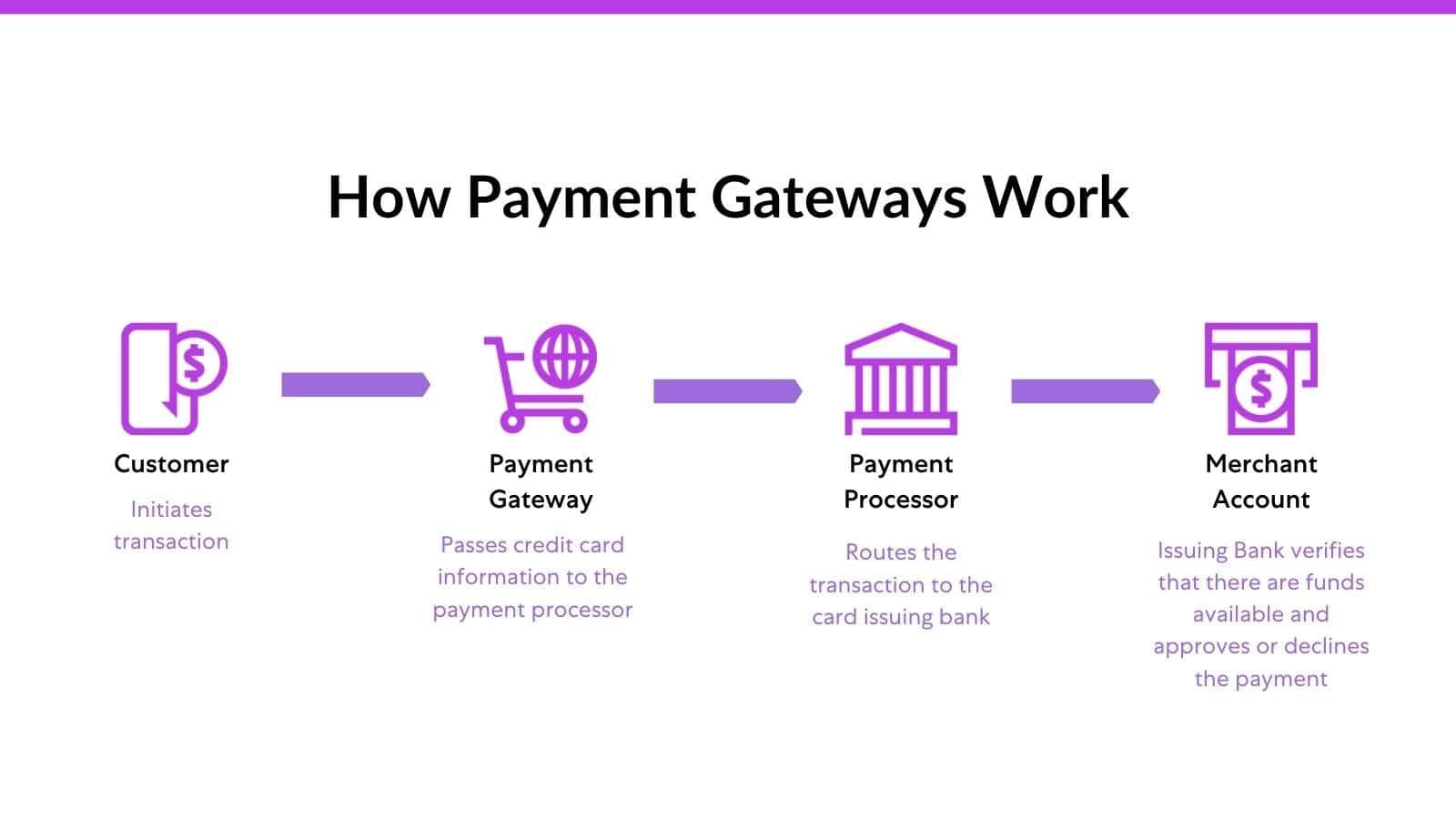
Wrap-Up: Making the Best Choice for Your Business Needs
Choosing the right payment gateway for your business is a crucial decision that can significantly impact your operations and customer experience. With the landscape evolving rapidly, it’s essential to assess the available options based on your specific needs. Here are some key factors to consider when making your choice:
- Transaction Fees: Analyze the fee structures of different providers. Some may charge a flat rate, while others incorporate a percentage of the transaction. Understanding this can help you forecast costs effectively.
- Integration: Ensure that the payment gateway integrates smoothly with your existing systems, whether it’s your e-commerce platform, CRM, or accounting software. A seamless integration will save you time and reduce errors.
- Customer Support: Evaluate the level of customer support offered. A provider that delivers 24/7 support can be invaluable, especially during peak transaction times or technical issues.
- Security Features: Look for gateways that offer robust security measures, such as PCI compliance and fraud detection tools, to protect both your business and your customers.
- Payment Options: The ability to accept various payment methods, including credit cards, digital wallets, and even cryptocurrencies, can enhance customer satisfaction and broaden your market reach.
To help you visualize your options better, we’ve compiled a comparison table highlighting some of the top providers in 2025:
| Provider | Transaction Fees | Integration Ease | Support Availability | Security Features |
|---|---|---|---|---|
| Gateway A | 2.9% + $0.30 | Easy | 24/7 | PCI Compliant |
| Gateway B | 2.5% + $0.15 | Moderate | 9am – 5pm | Enhanced Security |
| Gateway C | 3.0% + $0.25 | Easy | 24/7 | Fraud Detection |
Ultimately, the best choice aligns with your business model and growth strategy. Take the time to weigh the pros and cons of each provider, and don’t hesitate to reach out for demos or trials to assess compatibility firsthand. Remember, the right payment gateway not only streamlines transactions but also enhances customer trust and satisfaction, pivotal for your business’s success in the competitive market of 2025.
Frequently Asked Questions (FAQ)
Q&A: Payment Gateway Comparison – Top Providers Analyzed for 2025
Q1: What exactly is a payment gateway, and why is it important for businesses in 2025?
A1: Great question! A payment gateway is a technology that facilitates online transactions by securely capturing and transferring payment data between a customer and a merchant. In 2025, with more businesses going digital, having a reliable payment gateway is crucial. It not only ensures secure transactions but also enhances the customer experience, which is key to retaining customers and boosting sales.
Q2: With so many options available, how do I choose the right payment gateway for my business?
A2: Choosing the right payment gateway can feel overwhelming, but it boils down to a few key factors: transaction fees, ease of integration, security features, and customer support. Look for a gateway that aligns with your business model. For instance, if you’re an e-commerce store, you might prioritize a gateway that offers a seamless checkout process and supports multiple payment methods.
Q3: Which payment gateways are leading the pack for 2025?
A3: In our analysis, some standout providers include Stripe, PayPal, Square, and Adyen. Each has unique features that cater to different business needs. For example, Stripe is known for its developer-friendly API, while PayPal offers extensive global reach and brand trust. Depending on your business’s size and type, one might be a better fit than the others.
Q4: What are the key features to look for in a payment gateway?
A4: Excellent question! Here are some must-have features to consider:
- Security: Look for PCI compliance and advanced fraud detection tools.
- Multi-currency Support: Essential if you have customers around the globe.
- Mobile Optimization: With mobile shopping on the rise, a mobile-friendly gateway is a game changer.
- Integration Capabilities: Ensure it easily integrates with your existing systems, such as your e-commerce platform or accounting software.
Q5: How do transaction fees impact my choice of a payment gateway?
A5: Transaction fees can significantly impact your bottom line. Some gateways charge a flat rate per transaction, while others take a percentage. It’s important to calculate these fees based on your expected sales volume. Opting for a gateway with transparent pricing can save you from unexpected costs down the line.
Q6: Are there any emerging trends in payment gateways that we should be aware of in 2025?
A6: Absolutely! We’re seeing a surge in the use of cryptocurrencies, so some gateways are starting to support crypto payments. Additionally, the rise of subscription services has led to the development of more flexible billing options. Lastly, artificial intelligence is being leveraged for better fraud detection and personalized customer experiences. Staying ahead of these trends can give your business a competitive edge!
Q7: What’s the one takeaway you want readers to remember about choosing a payment gateway?
A7: Choose wisely! The right payment gateway is more than just a transaction facilitator; it’s a critical part of your customer’s journey. Take the time to evaluate your options thoroughly so that you can provide a seamless, secure, and enjoyable shopping experience for your customers. Investing in a top-notch payment gateway is investing in your business’s future!
Q8: Where can I find more detailed comparisons of these payment gateways?
A8: Our article provides an in-depth comparison and analysis of the top providers for 2025, including pros, cons, and user experiences. It’s a great starting point to help you make an informed decision. Happy reading, and may your business thrive!
Concluding Remarks
As we wrap up our deep dive into the world of payment gateways for 2025, it’s clear that choosing the right provider is more crucial than ever. With a myriad of options available, each boasting unique features and benefits, it can feel overwhelming to pinpoint the perfect fit for your business needs. However, armed with the insights we’ve explored, you’re now one step closer to making an informed decision.
Remember, the right payment gateway can not only streamline your transactions but also enhance your customer experience and drive sales. So, take the time to evaluate your options carefully. Consider factors like transaction fees, ease of integration, and customer support—after all, you want a partner who’s going to be there for you when it counts.
As we look ahead, the landscape of digital payments will continue to evolve, and staying updated on the latest trends and technologies will serve you well. Whether you’re a small business owner or part of a larger enterprise, investing in the right payment gateway is a step toward future-proofing your operations and ensuring you stay ahead of the curve.
So, go ahead—review your options, weigh your priorities, and make that choice with confidence. Your customers will appreciate the seamless experience, and your bottom line will thank you. Here’s to successful transactions and a prosperous 2025!

